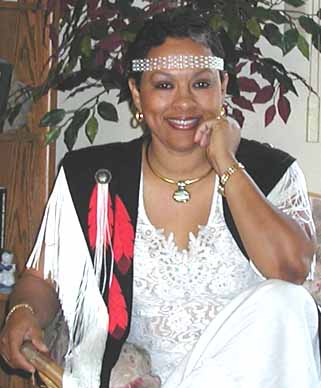
How freedom can lead to imprisonment:
a philosophy on the
danger of hate-expression
Burbank, California; December 13, 2001; Joan Marques, MBA, Doctoral
Student
(URL: https://www.angelfire.com/id/joanmarques/PR)
Just the other day the local newspaper published an article about the decreasing number of hate crimes against Muslims in California. Not without pride the article stated that the hate crimes are now down to "just" 1 a day (Burbank, Daily News, Dec. 12, 2001).
Yet, the reader soon discovers that the figures are partially reduced because "[the] police sorted out actual crimes from other incidents that didn't rise to a [certain] level" (Burbank, Daily News, Dec. 12, 2001). Now, isn't this intriguing?
It may be understandable that the police has some standards in determining whether an act of hate against a fellow human being is considered a crime or not, but the aftermath of this strategy could be worrisome. Why? First of all, because it creates room for irrational people to "only" tell you in your face that they'll kill you, burn your property, kidnap your children or that you should "go home," even if "home" is right here for you. And the bullies that express these emotions are left free to either transform their threats into reality, or just keep it to words, while in the meantime leaving you to live in a free country, yet emotionally crippled by a state of constant paranoia. So that's one of the legacies of "freedom". Everyone--the irrational and emotionally scarred ones included--is protected by the first amendment that guards freedom of speech, whereby speech also encompasses acts such as burning flags and other aggressive actions as long as "no one is hurt." This leads to another intriguing issue: how is "hurt" determined? By physicalities? What about the mental and emotional pain that these victims endure? Shouldn't we all, as human beings, realize that emotional pain goes deeper, hurts more, and lasts longer than physical pain? And that the damage done can ultimately be more destructive, at the least resulting in hatred in return, and at most in, well, who knows?
Let's look at it this way: if these threatened victims (or their children) stand up tomorrow and terrorize the bullies in return... but do that in a much more destructive way, isn't that, then, an expectable consequence of what they have to endure today? Imagine living your whole life in fear of being mistreated--like the blacks back in the sixties, or even now sometimes - just because of the way you look...
The ironic reality is that the high level of freedom in the U.S. (for bullies) toward victims creates several groups of people who are captured in constant angst within this very same free country!
Broadening the perspective somewhat one can wonder if this is not exactly the same principle of what has been going on at the global level in the past decades: one powerful bully who decides that he can make and break to his desire, doing so in a way that cannot be considered a crime (just like the California Police did with its criteria regarding hate crimes, remember?), simply because it's a free world... And then...the surprise: a devastating act that no one had expected, because it came from a group that was grossly underestimated. And everyone is astonished. Because no one considered the possible danger that could come forth from the poisonous brewing that had been going on in the minds of the mentally or emotionally wounded "victims" of the bully...
So what's the solution to this problem? Disabling the 1st amendment is out of the question. But maybe the lawmakers could look for a mode to implement some kind of a state of emergency, in which the acceptability-barrier for hate-acts in whatsoever shape is lowered within a time frame of, say, 4 months after the disaster? It might be the wisest thing to do in a situation where everybody is emotionally laden. And how easy wouldn't it be: for 4 months (or as long as lawmakers feel that society needs to regain her objectivity) to implement a rule whereby every act that even slightly reeks like hate-expression, is heavily penalized.
This solution should in no way be seen as an intrusion to the 1st amendment, but rather a subtle way in assisting the Founding Fathers. After all, no matter how intelligent they may have been, they could not possibly foresee all the "little" discomforts that their idealistic formulation of amendments would encounter over time. Fundamentally there's nothing wrong with allowing hate speech, but in vulnerable times such as these, the consequences may be unbearable... Let's not forget September 11...